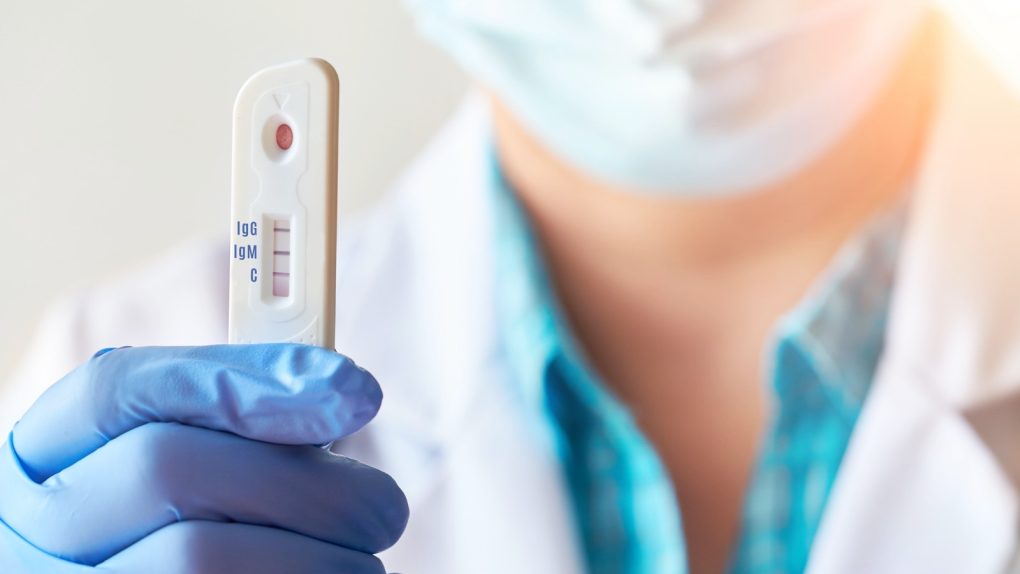- A company has developed a new coronavirus immunity test that can reportedly provide more accurate results than some of the commercially available antibody tests.
- The company reported results from a COVID-19 immunity study in Italy that showed the test could identify more COVID-19 survivors correctly and even prove that people who had no symptoms or a positive COVID-19 diagnosis were infected with the novel coronavirus.
- The Adaptive Biotechnologies T cell test might be available in November after the company seeks Emergency Use Authorization from the FDA.
The first coronavirus vaccine looks closer than ever now that Pfizer’s interim data showed a more than 90% effectiveness rate for the BioNTech experimental drug. As the US and Europe plan upcoming vaccination campaigns while dealing with the worst COVID-19 wave so far, the question of coronavirus immunity will have to be unequivocally answered. We’ll have to know exactly how long immunity lasts after infection or after the first round of vaccination to better prepare for a second bout with the illness and plan for a new round of vaccines.
Measuring coronavirus immunity is also important for a community’s public health measures. Once herd immunity is reached, and a large percentage of the population has been infected or vaccinated, the transmission rate drops considerably. Life can start to go back to normal. To measure immunity accurately, we need much better testing than what’s available right now. And the first such test is already in the making.
As COVID-19 approaches its first anniversary, we’ve come to understand a lot about immunity. A flurry of coronavirus immunity studies published in the past few months delivered the same set of conclusions that were offered earlier this summer. Some COVID-19 antibodies can disappear after 2-3 months. But we’re also getting more detailed data. Neutralizing antibodies that block it from infecting cells might last 5-7 months. More interestingly, COVID-19 survivors develop T cells or white blood cells that outlive antibodies and remember the pathogen. Those T cells live to fight another day and can raise another army of antibodies upon contact. And they can survive for at least 6 months. As more time passes, researchers will revise those estimates. The hope is that coronavirus immunity can last for up to a year, matching immunity to common colds.
There’s already proof that neutralizing antibodies and T cells work. The number of true reinfections is very small. Considering the massive COVID-19 surge right now, it’s likely that doctors would report more reinfection if people who got the virus in the spring would contract it again. It’s likely that most people who survived the infection are already repelling the virus.
The problem with COVID-19 immunity testing so far is that antibody tests, while quick and affordable, aren’t reliable. They might miss people infected either because of test flaws or because those survivors do not have enough circulating antibodies in their blood. Testing for T cells, which live longer than antibodies, seems like the obvious thing to do. But those aren’t the kind of tests that are widely available to the public.
All of that might change soon, as a company says it has developed a T cell test for COVID-19 that would catch more survivors than regular antibody tests can.
Researchers from Italy, the UK, and the UK studied people in Vo, Italy, to gauge the T cell test’s accuracy. They took samples from 70 people who had confirmed cases of COVID-19 only two months earlier, reports CNN. Those 70 immune systems should have provided some proof that a battle with SARS-CoV-2 had occurred and was won.
Antibody tests returned 23% negative results, which would suggest that 16 people did not have COVID-19. But the same group also got a T cell test, and that one only returned 3% false-negatives — or 2 people.
The researchers went even further and tested 2,200 people who previously got negative COVID-19 test results. Using the T cell test, they found that 45 of them have had the illness without knowing. The scientists said that only 25 of those had symptoms or had lived with someone who had a confirmed COVID-19 diagnosis, or both.
The company that makes the T cell test, Adaptive Biotechnologies, disclosed the results during an investors’ call. The data has not been published in a paper. The company did include this reference to the study in a Q3 2020 earnings report earlier this week:
Top-line results from a second real-world study, conducted in Italy, demonstrated T-cell testing outperforms serology in identifying past SARS-CoV-2 infections (97% sensitivity versus 77%) supporting launch of T-Detect COVID, a clinical T-cell based test for past infection.
Adaptive wants to launch its T cell test commercially in late November and apply for an Emergency Use Authorization (EUA) with the FDA. If successful, this would be the first T cell test for COVID-19 available to the public.
These quick videos from Adaptive explain in brief how the virus infects cells, how the immune system picks up its scent, and how T cells can incorporate its signature for future reference:








